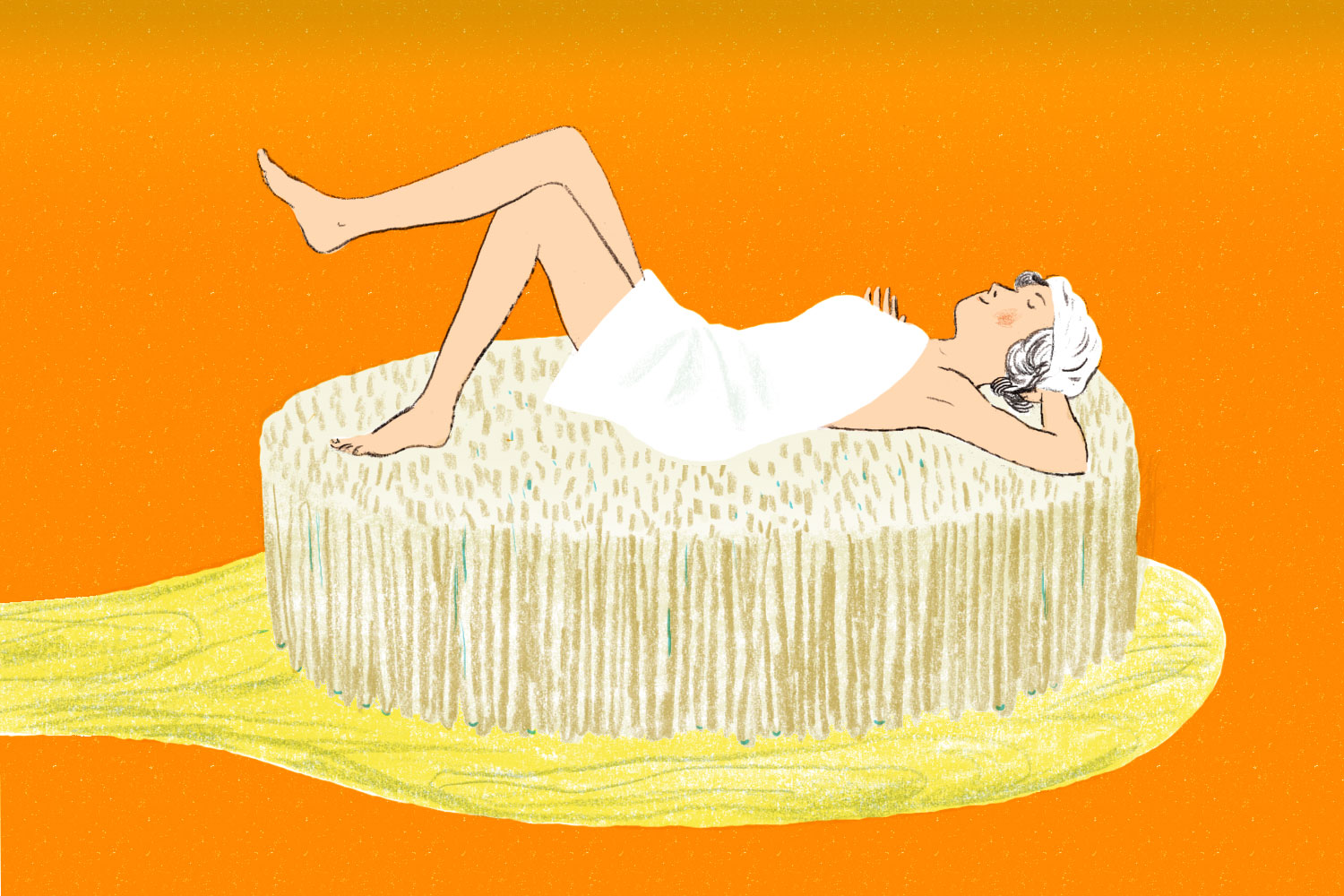
If you’re wondering what dry brushing is, the practice is exactly what it sounds like: Running a dry, soft-bristle brush over your bare skin. Methodologies vary, but most practitioners and beauty blogs recommend brushing your limbs and torso, always motioning toward your heart. Do this for a few minutes every day, they say, and you’ll increase blood flow and circulation, which will help your body and lymphatic system clear away toxins. Dry brushing is also thought to reduce cellulite and exfoliate, leaving your skin softer, more toned and better hydrated.
Unfortunately, there’s not much research to back up these health claims. “I know dry brushing is popular, but the actual benefits are unclear,” says Dr. Tina Alster, director of the Washington Institute of Dermatologic Laser Surgery and a clinical professor at Georgetown University.
Alster says that rubbing the skin—with a brush, your hand or anything else—will increase blood flow and circulation, giving your skin a flushed, youthful and “slightly swollen” appearance. (The same thing happens if you pinch your cheeks.) But your skin will return to normal very quickly after you’ve stopped brushing it, Alster says. There’s no evidence this temporary surge in blood flow will help your body remove waste or toxins, she adds.
Dry brushing will clear away dead skin cells. But exfoliating isn’t necessary for those in their teens and twenties. “When you’re young, your skin’s outermost layer will automatically turn over without any mechanical help,” Alster explains. Beginning in your thirties and increasing as you age, Alster says your skin’s cells can grow “stickier,” which can lead to accumulation and a dull appearance. “Exfoliation can help remove those stuck-together cells,” she says. “But you want to do it very gently and infrequently, or you may do more harm than good.”
Brushing too frequently or vigorously—or using a brush with rough bristles—could cause “micro-cuts” in your skin that may lead to infection, Alster says. Exfoliating more than once a week could also break down your skin’s protective barriers, leaving your hide less hydrated and prone to irritation, says Dr. Marc Glashofer, a New York-based dermatologist and member of the American Academy of Dermatology. For that reason, Glashofer says people with eczema or dry skin should avoid dry brushing altogether.
Glashofer mentions a common skin condition called keratosis pilaris (KP), which consists of many small rough bumps that tend to show up on the backs of arms and thighs. Dry brushing these areas could theoretically be beneficial, he says, but there’s no evidence yet.
And when it comes to reducing cellulite, both Glashofer and Alster say there’s nothing to back up such claims. “If brushing the skin twice per day would eliminate cellulite, you would have heard a lot more about it and there’d be some scientific proof,” Glashofer says.
Of course, not everything that benefits your body is easily captured by medical research. From meditation to massage, many practices once dismissed by clinicians have recently been linked to meaningful psychological and physical benefits. It’s possible dry brushing may one day fall into this category, but that day hasn’t arrived yet.
“If you like dry brushing and your skin looks good, that’s fine,” Alster says. “But would I encourage it as a dermatologist? Definitely not.”
Read next: 25 Delectable Detox Smoothies
More Must-Reads from TIME
- Cybersecurity Experts Are Sounding the Alarm on DOGE
- Meet the 2025 Women of the Year
- The Harsh Truth About Disability Inclusion
- Why Do More Young Adults Have Cancer?
- Colman Domingo Leads With Radical Love
- How to Get Better at Doing Things Alone
- Michelle Zauner Stares Down the Darkness
Contact us at letters@time.com